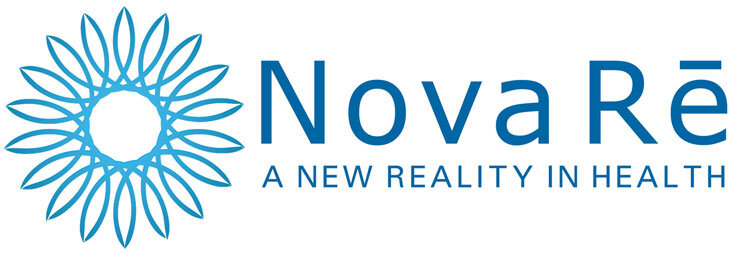Research of Nutritional Effects on ADHD Symptoms
ADHD is a neurodevelopmental health condition. Many times ADHD symptoms are seen only as a behavioral problem. There is now research and imaging that shows otherwise.
Pediatric Integrative Medicine Approaches to Attention Deficit Hyperactivity Disorder (ADHD) A. Esparham https://www.ncbi.nlm.nih.gov/pmc/articles/PMC4928725/
Research has shown that there is a gut microbiome–mind–body continuum in which the enteric microbiota interact with the neuroendocrine system [118]. The gut microbiome essentially has its own nervous system, as it produces neuroendocrine hormones that transmit information across the microbiome [119]. There is increasing evidence that gut bacteria can modulate mood and behavior via the gut–brain axis [120].
Medications, such as antibiotics, can disrupt the gut microbiome by reducing diversity and allowing overgrowth of some pathogenic microorganisms [123]. Gut microbiota, such as Candida, can invade the intestine as a pathogen and may lead to deterioration in ADHD symptoms [124]. A Western diet, even in a short-term period, can alter the gut microbiome, again demonstrating the importance of diet and nutrition as a valuable therapy in ADHD [125].
Reduced GABA concentration in Attention-Deficit/Hyperactivity Disorder. Edden et al
https://www.ncbi.nlm.nih.gov/pmc/articles/PMC3970207/
Attention-deficit/hyperactivity disorder (ADHD) is a developmental disorder characterized by a deficit in behavioral inhibition. Recent evidence also suggests a deficit in cortical inhibition via the GABA (γ-aminobutyric acid)-ergic system.
Our finding of reduced GABA concentration in ADHD is concordant with recently reported deficits in short intracortical inhibition in ADHD and suggests a GABAergic deficit in ADHD.
Complimentary and Alternative Medical Therapies for Children with ADHD. J. Pellow et al https://www.researchgate.net/profile/Elizabeth_Solomon/publication/51980244_Complementary_and_Alternative_Medical_Therapies_for_Children_with_Attention-DeficitHyperactivity_Disorder_ADHD/links/0a85e53c7899127238000000/Complementary-and-Alternative-Medical-Therapies-for-Children-with-Attention-Deficit-Hyperactivity-Disorder-ADHD.pdf
Magnesium, glutathione, and/or omega-3 fatty acids, for instance, have been linked to concentration, memory, and learning problems in children with ADHD. Various studies have reported the benefits of EFA supplementation in varying dosages for reducing anxiety, attention difficulties, and behavioral problems in children. In one clinical trial, high daily doses of fish oil (8-16 g), administered to ADHD children, produced a significant improvement in behavior and attention, as well as reduced hyperactivity and defiance. Daily EFA supplementation or eating foods that are rich in EFAs is recommended.
Upregulated GABA Inhibitory Function in ADHD Children with Child Behavior Checklist- Dysregulation Profile: 1231-lomazenil SPECT Study. S. Nagamitsu, Y. Yamashita et al.
https://www.ncbi.nlm.nih.gov/pmc/articles/PMC4451796/
This is the first neuroimaging study showing that behavioral and affective symptoms in children with ADHD, reflected in CBCL–DP scores, are correlated with changes in cortical GABAergic neuronal activity.
Magnesium, zinc and copper estimation in children with ADHD. F. Albaz et al.https://reader.elsevier.com/reader/sd/pii/S1110863016300283?token=A1A6CDF1C05B2A6460B6FFDA50D136298FABF48C1FF9A724099563B1BA22AC8E000113996F7F6BD44232846A7BA61B56
Magnesium and zinc deficiencies were found to be correlated with hyperactivity, inattention and impulsivity. However, this correlation was not found in the copper deficient ADHD cases.
Clinical Appraisal of Omega 3 fatty acids in attention deficit hyperactivity disorder treatment. A. Konig et al
https://www.ncbi.nlm.nih.gov/pmc/articles/PMC4968854/
Attention-deficit/hyperactivity disorder (ADHD) is a common neurodevelopmental disorder. The classical treatment of ADHD where stimulant medication is used has revealed severe side effects and intolerance. Consequently, the demand to search for alternative treatment has increased rapidly. When comparing levels of omega-3 polyunsaturated fatty acids (ω-3 PUFAs) in ADHD patients with those in age-matching controls, lower levels are found in ADHD patients’ blood. ω-3 PUFAs are essential nutrients and necessary for a proper brain function and development. Additionally, there are strong indications that ω-3 PUFA supplements could have beneficial effects on ADHD.
Frontal lobe γ-aminobutyric acid levels during adolescence: associations with impulsivity and response inhibition. M. Silveri et al
https://www.ncbi.nlm.nih.gov/pmc/articles/PMC3695052/
These data provide the first human developmental in vivo evidence confirming frontal lobe GABA maturation, which was linked to impulsiveness and cognitive control. These findings suggest that reduced GABA may be an important neurobiological mechanism in the immature adolescent brain, contributing to the reduced yet rapidly developing ability to inhibit risky behaviors and to make suboptimal decisions, which could compromise adolescent health and safety.
Nova Rē’s digestive and nutrient supports follow rigorous quality assurance standards including 3rd party testing of each batch in a GMP facility.
We will continue to add research so check back regularly.

